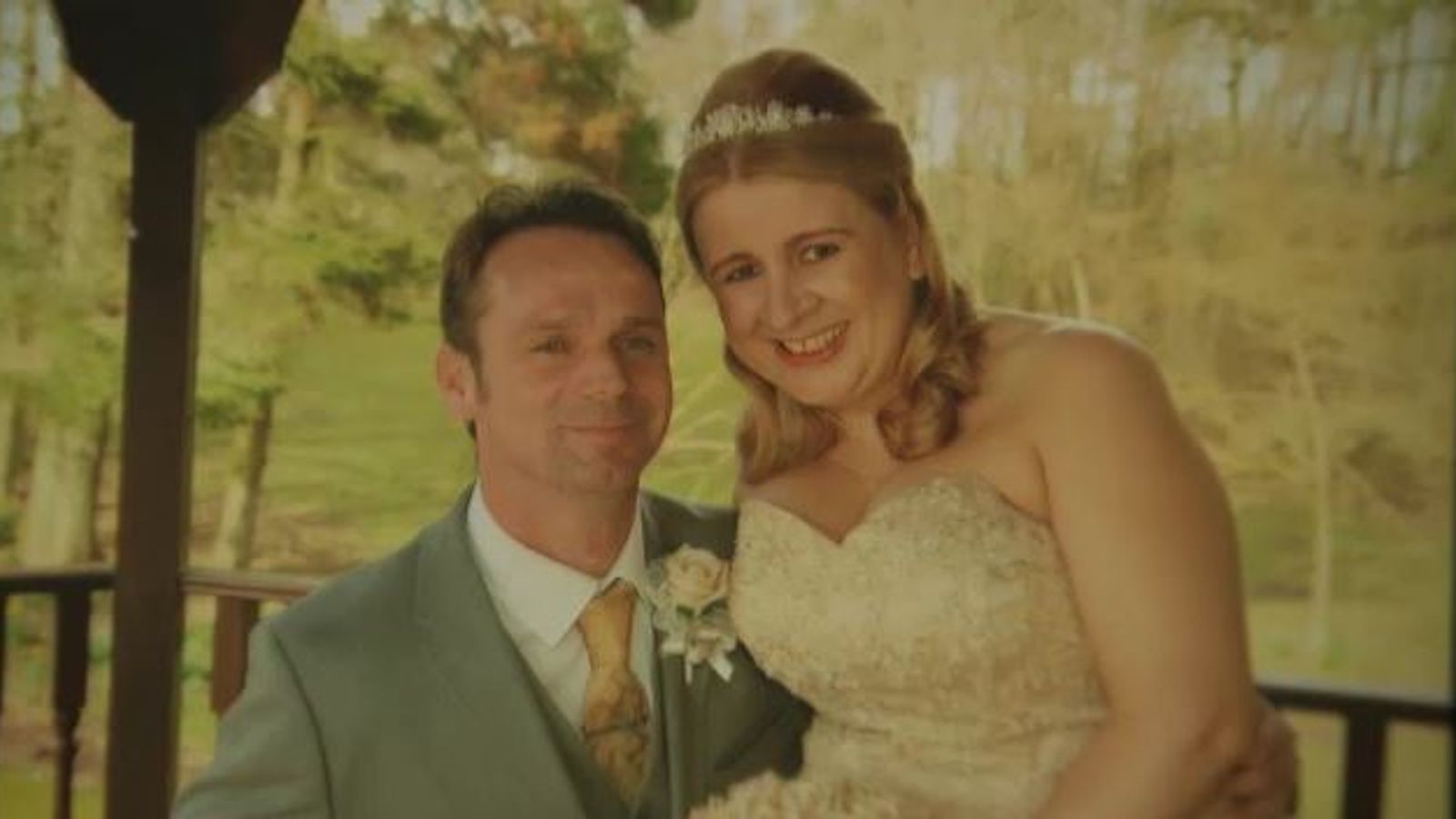“Don’t let cancer patients be the forgotten people of COVID” – that’s the plea from a woman who lost her husband after delays in his treatment.
Amanda Rogers’ husband Adrian, from Nottinghamshire, was diagnosed with stage four bowel cancer in July 2018 and, after many rounds of chemotherapy, he was booked in for surgery in Manchester.
The surgery was set for March last year but in April he was told it could not go ahead, as hospitals across the country struggled to balance the increasing needs of COVID-19 patients.
Mrs Rogers told Sky News: “It was devastating – all the chemo, (the surgery) was what we’d worked for…and Adrian was absolutely devastated, as was I.”
While Mr Rogers waited, his cancer grew and he suffered liver failure and died in February this year, aged 46.
His wife said: “It could have been such a different outcome.
“You have a lot of ‘what ifs’ – if COVID had never been here, he would have had his operation and things could have been totally different.”
But the couple’s experience was not unique.
The British Medical Association (BMA) has estimated there were 3.5 million fewer elective procedures performed between April last year and March this year.
There were also 22.27 million fewer outpatient attendances, which are often where problems such as cancer are first confirmed after being referred by a GP.
NHS data shows there were more than five million people waiting to start treatment in England in April – the highest number ever recorded.
At the same time, the surge in cases of the Delta coronavirus variant risks putting hospitals under pressure again, particularly those in the Midlands and England’s north.
All of this will be on the agenda for Sajid Javid, who has replaced Matt Hancock as health secretary.
When asked what she would say to Mr Javid, Mrs Rogers said: “Don’t let cancer patients be the forgotten people of COVID. They need urgent treatment – time is everything when you’ve got cancer.”
Please use Chrome browser for a more accessible video player
Chairman of the BMA council Chaand Nagpaul said: “Many of (the patients waiting for treatment) will become more ill as time goes on.
“Many of them have health conditions which if they’re not treated promptly will be come more serious.
“What he (Mr Javid) will need to do is manage that crisis in a way that delivers prioritisation and he will need to be honest with the public about the length of time it’s going to take.”






















